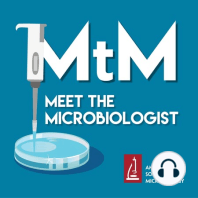15 min listen

MTS7 - Anthony Fauci - Managing Infectious Disease on a Global Scale
MTS7 - Anthony Fauci - Managing Infectious Disease on a Global Scale
ratings:
Length:
15 minutes
Released:
Nov 11, 2008
Format:
Podcast episode
Description
Dr. Anthony Fauci is the director of NIAID – the National Institutes for Allergy and Infectious Disease – where he is also Chief of the Laboratory of Immunoregulation. Dr. Fauci’s research interests lie primarily in the molecular mechanisms of HIV and AIDS, and he has published extensively on the interactions of HIV with the immune system. He’ll be speaking at the opening session of ICAAC – the Interscience Conference on Antimicrobial Agents and Chemotherapy – on October 25 in Washington DC, where he’ll describe some of the remaining challenges in the fight against HIV, tuberculosis, and antibiotic resistant microbes.
Dr. Fauci is not only a researcher, he is also an important player in science policy in the U.S. He was a primary architect of PEPFAR, the President’s Emergency Plan for AIDS Relief, a program that received reauthorization and has a budget of $48 billion for HIV/AIDS, tuberculosis, and malaria around the world. In honor of his efforts to improve our understanding and treatment of HIV and AIDS, Dr. Fauci was recently awarded the Presidential Medal of Freedom, the nation’s highest civil award.
In this interview, I talked with Dr. Fauci about progress in managing infectious disease on a global scale, why it’s the “devil you don’t know” that is still the scariest infectious disease of all, and about the roles of abstinence education and condom awareness in PEPFAR.
Dr. Fauci is not only a researcher, he is also an important player in science policy in the U.S. He was a primary architect of PEPFAR, the President’s Emergency Plan for AIDS Relief, a program that received reauthorization and has a budget of $48 billion for HIV/AIDS, tuberculosis, and malaria around the world. In honor of his efforts to improve our understanding and treatment of HIV and AIDS, Dr. Fauci was recently awarded the Presidential Medal of Freedom, the nation’s highest civil award.
In this interview, I talked with Dr. Fauci about progress in managing infectious disease on a global scale, why it’s the “devil you don’t know” that is still the scariest infectious disease of all, and about the roles of abstinence education and condom awareness in PEPFAR.
Released:
Nov 11, 2008
Format:
Podcast episode
Titles in the series (100)
MTS1 Ralph Tanner - The Future of Biofuels: Ralph Tanner, a professor of microbiology at the University of Oklahoma, focuses his research on anaerobes in the environment and putting those bacteria to use in industry. He develops useful microbial catalysts for biofuel production from sustainable cro by Meet the Microbiologist